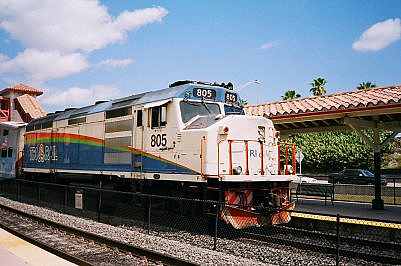Workers at America’s largest rail union rejected a tentative contract agreement, once again raising fears of a rail strike that could devastate the U.S. economy just before the holidays.
Summary
Workers at America’s largest rail union rejected a tentative contract agreement, once again raising fears of a rail strike in the coming weeks that could devastate the U.S. economy just before the holidays.
- Train and engine workers of the International Association of Sheet Metal, Air, Rail, and Transportation Workers (SMART-TD) voted narrowly to reject the Biden administration-brokered deal, while members of the Brotherhood of Locomotive Engineers and Trainmen (BLET) accepted the agreement.
- Three other unions have already rejected the deal, while seven smaller unions accepted the five-year deal to raise wages by 24 percent, plus a $5,000 bonus.
- Workers voting against the agreements cite their failure to address scheduling and time-off issues raised by workers.
- The earliest a strike could begin is December 9, setting the stage for a holiday shopping nightmare should a strike derail rail transport, which accounts for around a third of U.S. freight including food, packaged goods, and fuel.
- A strike would cost the U.S. economy an estimated $2 billion a day, while a month-long strike is estimated to cost the economy 700,000 jobs and $160 billion and could cause inflation to skyrocket.
- The deal’s failure is a blow to the White House, which sold the deal as a major accomplishment when it was concluded in September.
- While union leadership was on board with the administration’s proposal, rank-and-file members have been much less cooperative.
![]()
- POLITICO reported a potential rail strike could force Congress to intervene to avert a work stoppage, leaving lawmakers a short window after Thanksgiving to make sure coal shipments, drinking water, and other winter essentials can still be transported without impediment.
- The Washington Post noted seven of the 12 unions have approved their contracts, while attendance and sick leave policies have been the main sticking points for the remaining holdouts.
- President Joe Biden seems unable to convince his labor allies to accept the deal. Per CNN: “Biden called those deals “a win for tens of thousands of rail workers and for their dignity and the dignity of their work.” He had directly intervened in the final round of talks, but his praise of the deals wasn’t enough to win approval from rank-and-file members of the conductors’ union.”
![]()
- The Wall Street Journal observed Congress shut down the last national rail strike, in 1991, about 24 hours after it began.
- The Washington Examiner explained that railroad strikes are governed by the Railway Labor Act of 1926, unlike other strikes which are governed by the National Labor Relations Act. This distinction allows Congress to step in to prevent a strike or force the parties to accept the Presidential Emergency Board’s recommendations.
- Breitbart pointed out businesses will start feeling the effects of a threatened strike even before the December deadline as railroads will start to reduce shipments of toxic chemicals or perishables in the days leading up to the deadline.
© Dominic Moore, 2022






